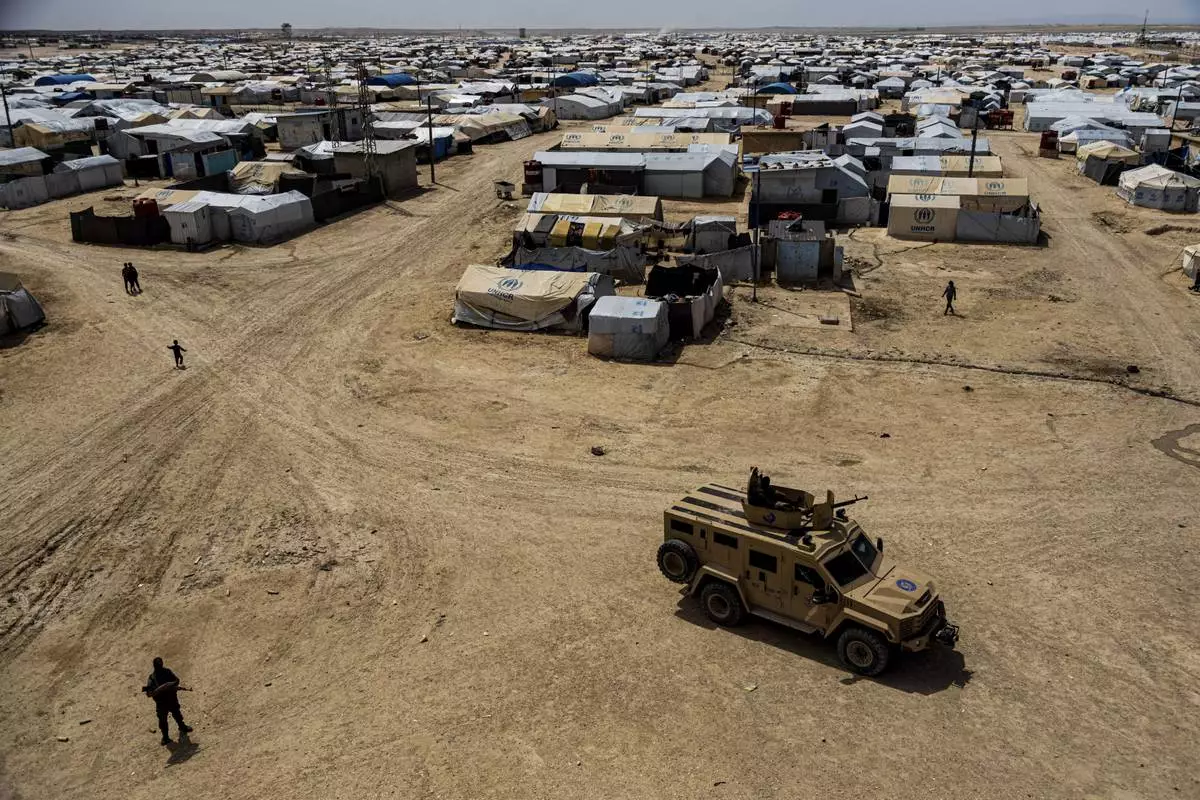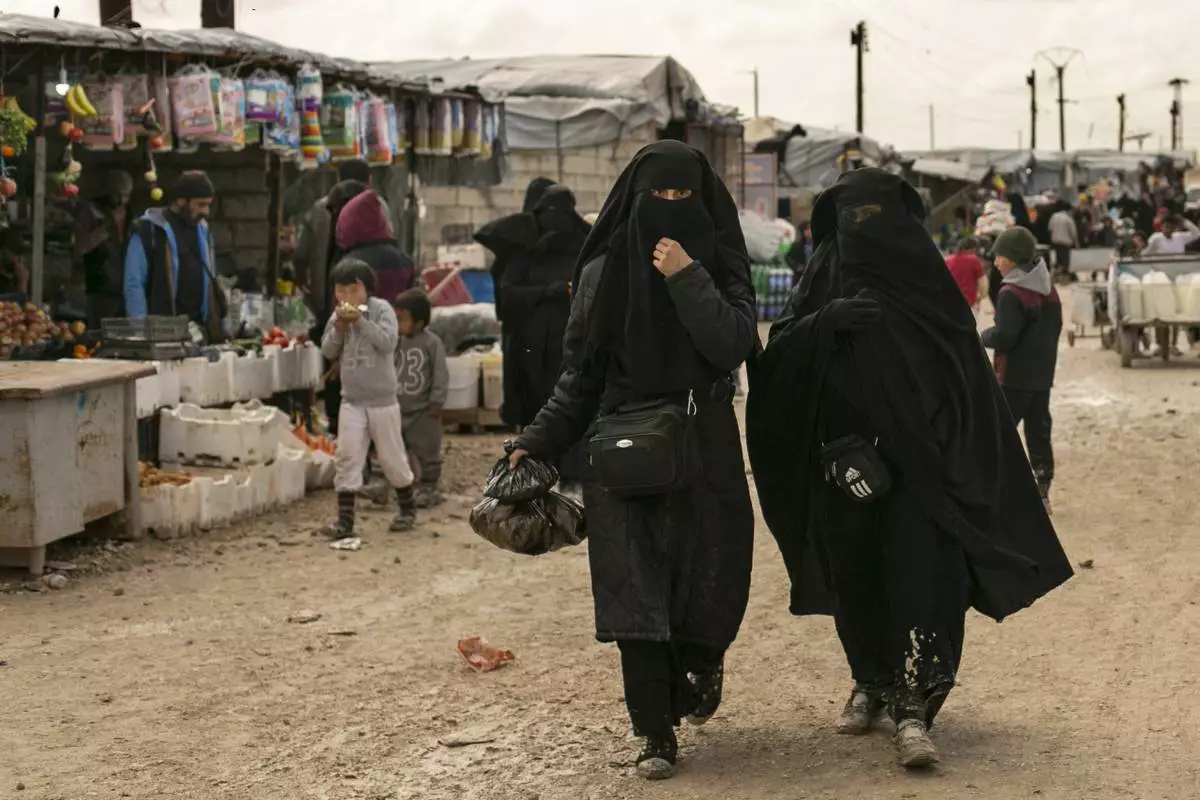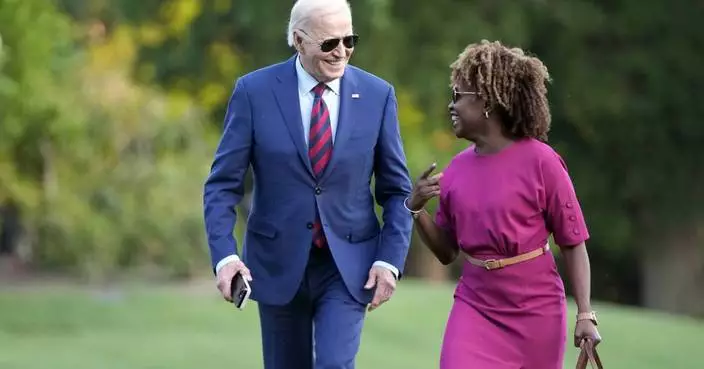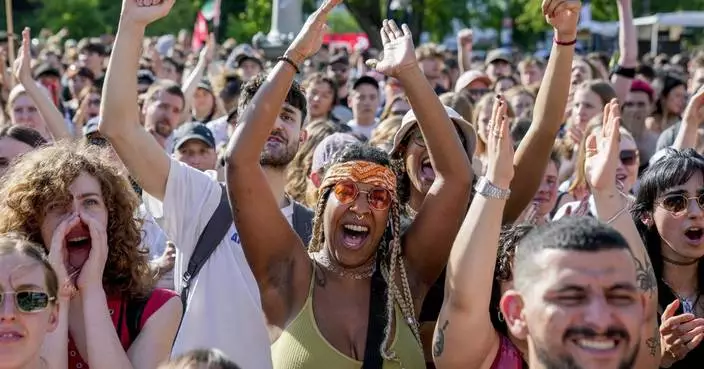Two of the Carolinas' most prominent American Indian tribes are battling over geography and lucrative gambling turf.
The Cherokee in North Carolina, with two casinos established in the mountains, say their opponents should stay in their own state to the south. The Catawba of South Carolina argue such state boundaries are artificial and shouldn't affect their effort to gain a foothold in the industry.
The Catawba Indian Nation, with a 700-acre (283-hectare) reservation in upstate South Carolina, has been unable to build a high-stakes gambling operation in the state despite a 1993 federal law that Catawba Chief Bill Harris says was supposed to open the door for them to do so. The tribe blames fierce anti-gambling opposition from South Carolina leaders.
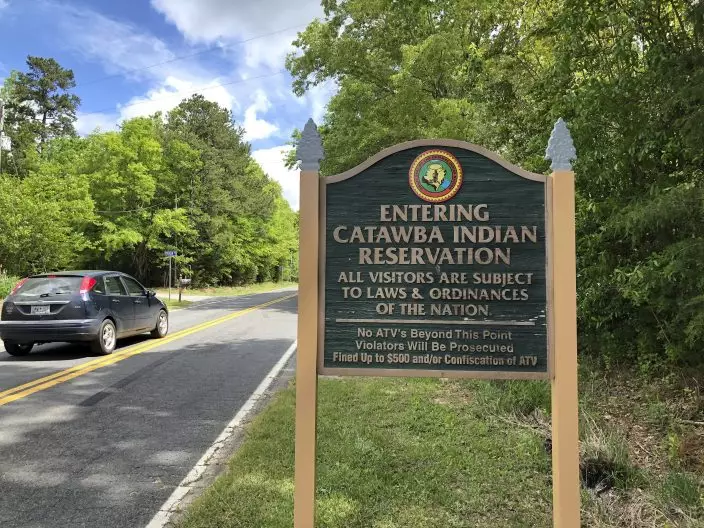
In a Friday, April 26, 2019 photo, a sign welcomes people to the Catawba Indian Nation’s reservation near Rock Hill, S.C. Two of the Carolinas’ most prominent American Indian tribes are battling over geography and lucrative gambling turf. The Cherokee in North Carolina, with two casinos established in the mountains, say their opponents should stay in their own state to the south. The Catawba of South Carolina argue such state boundaries are artificial and shouldn’t affect their effort to gain a foothold in the industry. (AP Photo Jeffrey Collins)
Instead the Catawba are hoping to revive previously failed efforts to build a casino in North Carolina just 35 miles (56 kilometers) northwest of the Catawba reservation, specifically along Interstate 85 in the Charlotte suburb of Kings Mountain, where they say they have a historical and legal claim to land.
Powerful U.S. senators from both states are backing them, but their efforts may not be enough. A bill they've sponsored in Congress has drawn fierce opposition from lawmakers in North Carolina, where the Cherokee tribe — one of the state's most prolific campaign donors — already runs two successful casinos in the far western region of the state.
Those operations, the first of which opened in 1997, have transformed the fortunes of the tribe's 16,000-member Eastern Band of Cherokee Indians and surrounding Appalachian counties, creating jobs, state-of-the-art government services and payments of about $12,000 annually to each tribal member.
Harris says his tribe — whose federal recognition was restored in 1993 after its removal 40 years earlier — deserves the same prosperity.
A casino, he says, would rescue a reservation population whose 28% poverty rate for families is nearly twice the state average: "The opportunities would be limitless."
Six years ago, the Catawba filed an application with the Interior Department to get permission to build on the Kings Mountain acreage. But then-North Carolina Gov. Pat McCrory, more than 100 legislators and state House Speaker Thom Tillis — now a U.S. senator and one of the sponsors of the current bill — shot down the idea.
The U.S. senators' bill, also backed by North Carolina Sen. Richard Burr and South Carolina U.S. Sen. Lindsey Graham, would direct the Interior Department to authorize gambling on the land.
Tillis spokesman Dan Keylin says the senator changed his mind about the tribe's request because local Kings Mountain-area leaders have contacted his office expressing their support.
During a Senate committee hearing on the bill in May, John Tahsuda, of the Interior Department's Indian Affairs division, said it was "clear that the benefits that Congress intended for the tribe" in a settlement the federal government reached with the Catawba in 1993 "have not been realized." He took no formal stand on the legislation.
Graham remarked, "I'm from South Carolina. Nobody, nobody objects to the Catawbas having land in North Carolina and in establishing a gambling operation as long as it's consistent with the law."
Some people north of the border feel differently.
Gov. Roy Cooper has expressed concerns because the senators' bill appears to exempt the Catawba from having to negotiate with the state over details such as which games could be offered and whether North Carolina would receive a cut of the revenues.
Cherokee Eastern Band Principal Chief Richard Sneed says the senators' bill could have "devastating" economic consequences in his tribe's region, where poverty used to be rampant. A Catawba casino could siphon visitors from South Carolina and the eastern two-thirds of North Carolina who want to play blackjack, roulette and slots — and previously did so at the Cherokee-owned casinos.
Besides, the tribe contends, the Catawba have no legal or historical claims to the land where they want to build.
"The historical evidence is on the side of the Cherokees on this one," Sneed says. He says territorial agreements the tribes reached with the federal government long ago were based in part on information from a 19th century map that shows there was no Catawba-controlled land in North Carolina after the mid-1700s.
Catawba chief Harris says the land in question is well within the tribe's ancient boundaries and also just 8 miles (13 kilometers) from the site in northern South Carolina where the Catawba aided a decisive victory against the British in a key 1780 Revolutionary War battle. The Catawba River and Catawba County also are in North Carolina.
So far, the Cherokee tribe is finding success pushing back: North Carolina state Senate leader Phil Berger and 38 of his colleagues have sent a letter to the U.S. Senate Indian Affairs committee asking it to reject the "unprecedented overreach" of the U.S. senators' bill.
That doesn't sit well with Harris.
"To have someone say, 'No, no, they cannot have what we have, they cannot have what other nations have, they have to suffer' — it is a hard pill to swallow," he says.



